In Northeast Syria, densely populated displacement camps pose a health risk as illness can easily spread amongst residents, especially when hygiene is a challenge.
After fleeing her home, Fatima found adjusting to camp life overwhelming, especially as she cared for her children and sick husband. Amidst all the change and stress, it was difficult to prioritize hygiene and keeping their tent clean.
“We were not lacking anything in our village,” Fatima said. “There we had a large house, an orchard, and a garden. Our house was clean and beautiful, and its surroundings were decorated with roses. But now everything has changed, so I do not care about tidying, beautifying, or planting flowers anymore.”
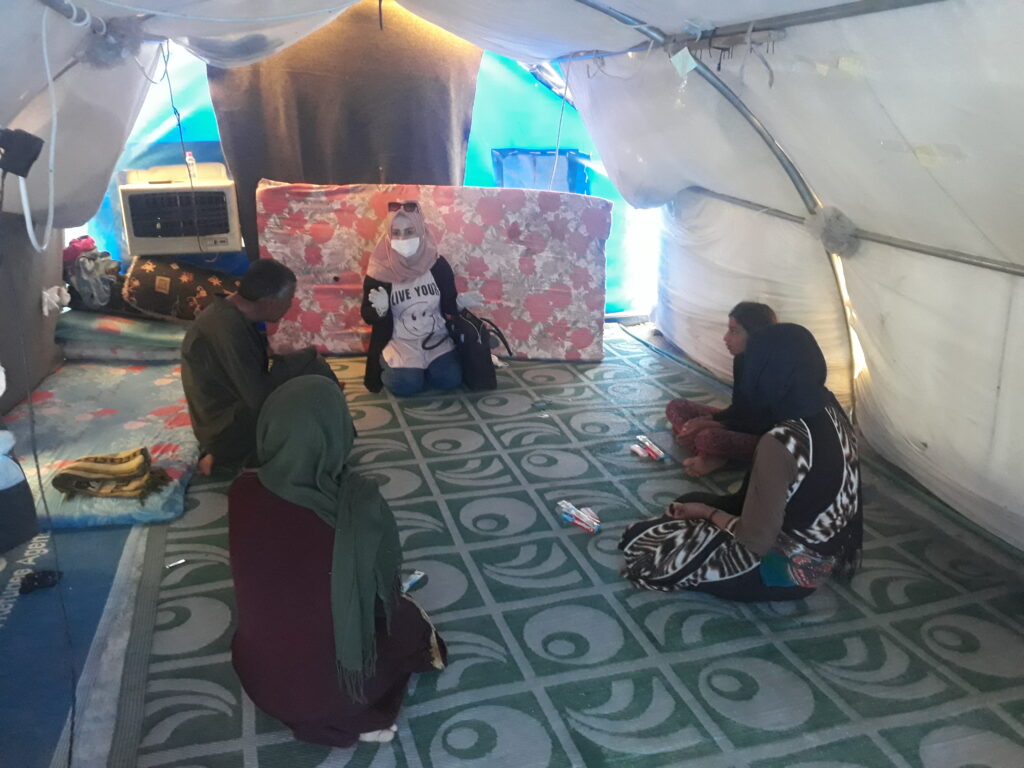
Fatima and her family receive a hygiene awareness session in their tent
Recognizing that she needed help as she figured out how to best care for her family in their new situation, Fatima attended an awareness session in the camp to learn about common illnesses and how they can be prevented. Teams shared resources available in the camp and important ways that good hygiene and a clean home could help prevent disease.
The training and new information energized Fatima and her family. She worked with her children to clean the tent and the whole family made time to improve their personal care. Fatima planted flower seedlings outside their tidy home, and her daughters proudly showed off the homemade dollhouse they had crafted for their toys. When a contest was held to find the best-kept tent, Fatima and her family won.
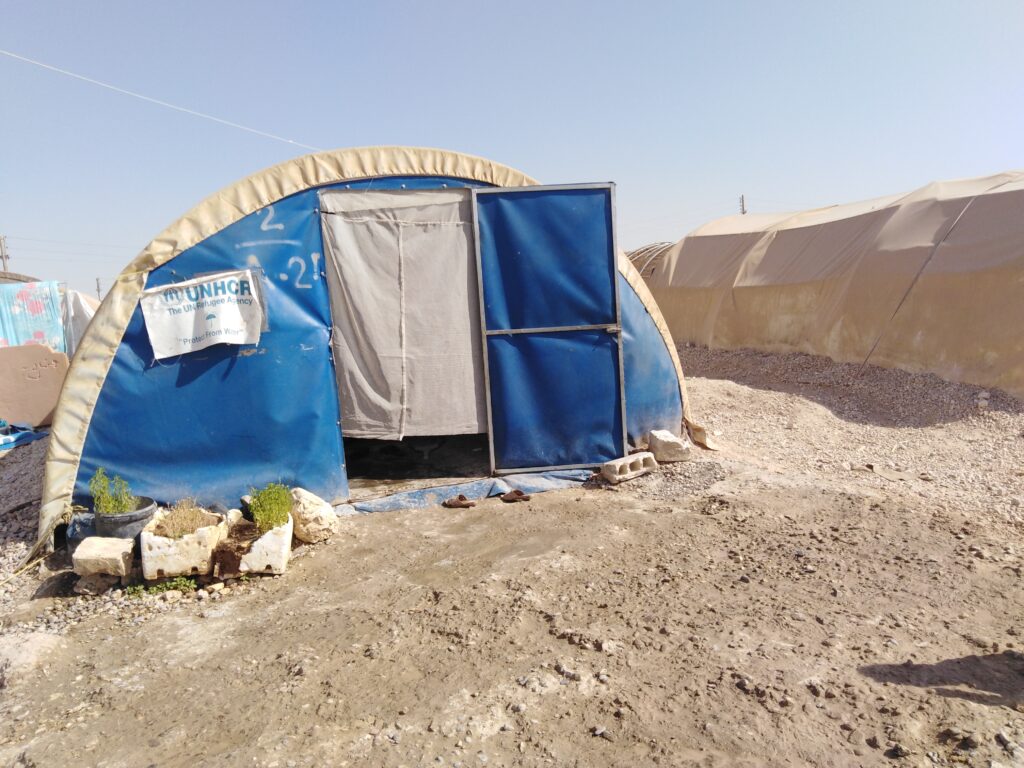
Fatima used seedlings to plant small garden outside her tent
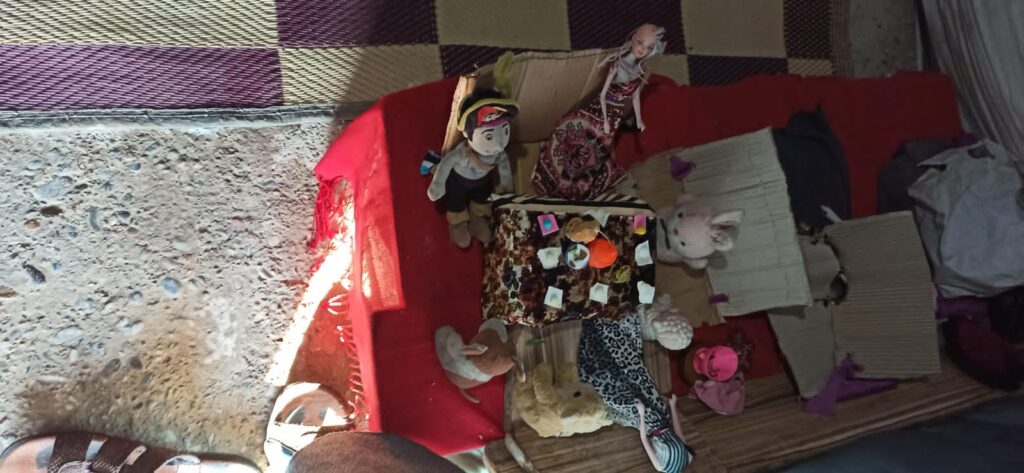
A dollhouse proudly created by Fatima’s children in their newly clean tent
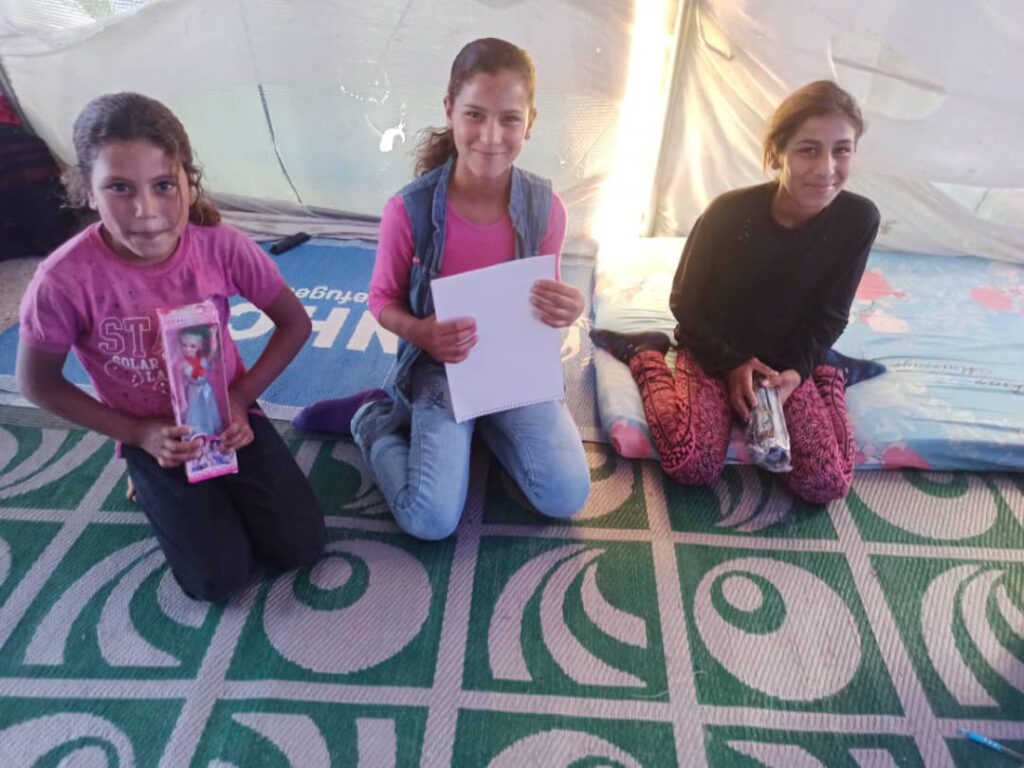
Fatima’s daughters received new dolls after winning the competition for the cleanest tent
“I thank the Blumont team for restoring our confidence, bringing us joy, and helping us to care more for personal hygiene and sanitation,” said Fatima. “After attending the sessions, I realized that life is still beautiful, my children should never be neglected, and flowers can grow wherever they happen to be, in a house garden or around a tent. What matters is our blooming inside.”
While close quarters and limited resources make hygiene and health critical at all displacement camps, those located close to water often deal with the additional challenge of insects carrying disease. Sand flies are both a pest and a potential source of Leishmaniasis — a potentially deadly parasitic infection that can cause disfiguring skin sores and internal organ damage.
When three-year-old Adel moved to a camp after his family was displaced by conflict, he developed a terrible infection that his family did not recognize. Case workers tracking infectious diseases, including Leishmaniasis, identified Adel’s condition and immediately referred him for treatment.
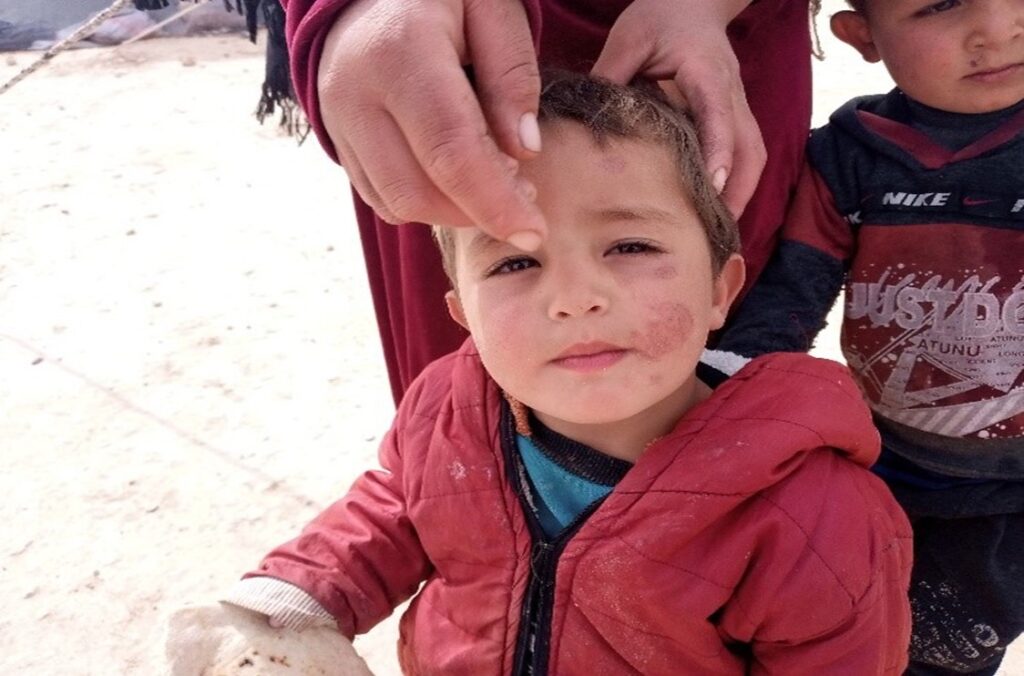
Adel’s healing face after treatment
As Adel received care over the next several months, teams also worked to prevent further infections by conducting hygiene and health awareness sessions and working with partners to exterminate sand flies in the camp.
Adel made a full recovery and the ongoing support from camp teams has helped allay his family’s concerns, while also encouraging them and their neighbors to reach out in the future because they know help is available.
***
READ MORE
COVID-19 Prevention and Recovery in NE Syria
Awareness Campaign Protects Displaced People Against COVID-19



